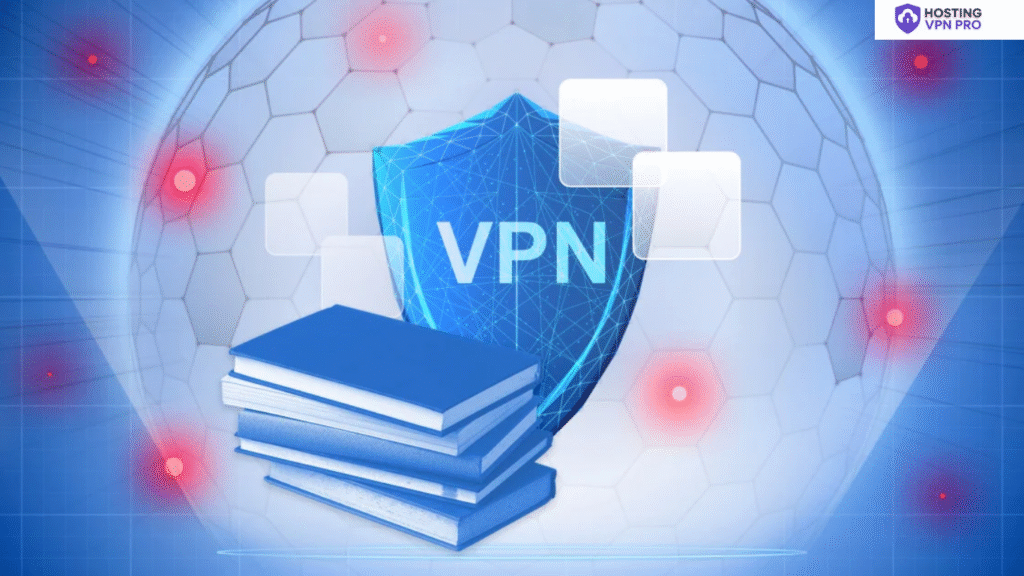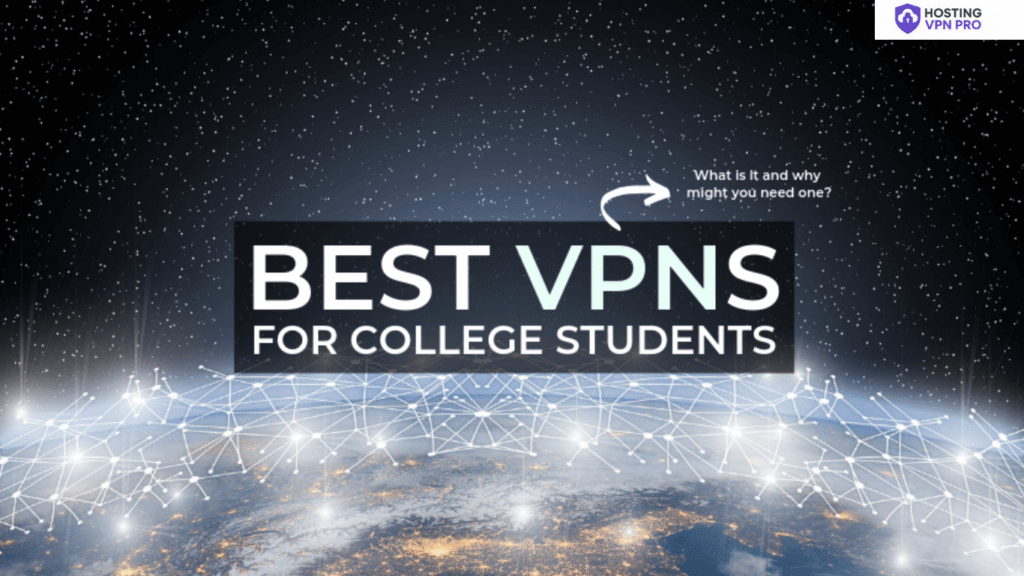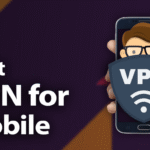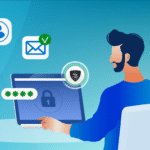Today, the digital world is advancing with lighting speed especially for students, who mainly rely on online platforms. From virtual classrooms to Google classroom, zoom. With these facilities comes online privacy and blocked access.
Trusted VPNs can play a key role for students, A VPN (Virtual Private Network) provides a secure network which connects to the internet. Access educational content that is blocked in your region and keep your personal information safe and secure from hackers.
Table of Contents
The Role of VPNs in Modern Online Education
In the digital era of online classrooms,VPNs play a key role in making sure students get region blocked content. Students while learning online face geo blocked study materials and using public wifi and risk of exposing privacy. A VPN can solve these issues with ease, a trusted VPN can mask your IP address, hide your personal data and give access to blacked academic content.
- To have access to blocked educational content.
- To use online learning platforms safely.
- A VPN is a must to stay protected on public Wi-Fi.
- To keep your academic privacy safe and secure.
The Power of VPNs in Online Education
VPNs are changing the way students learn online by providing security, security and access to restricted global educational blocked content. Everything is online now, using trusted VPNs can shield your personal information and secures users from hackers and on public Wifi. A VPN gives students access to global restricted study materials, research journals and online courses from around the world.
Also Read- Best Mobile VPN Apps for Android & iPhone in 2025
Access To Global Blocked Educational Content
There are many online learning portals and research databases that are blacked with a VPN, students can easily access.
Secure Remote Access
During online classes, your device continuously exchanges data, personal information, login credentials and assignments using trusted VPN, you can secure all of these.
Access to School or College Blocked content
Some educational institutes block social media and many other sites. Use of VPNs can solve this easily.
Security on Public Wi-Fi
Students use public Wi-Fi that is not always safe. A VPN masks your online activity from hackers.
How VPNs Keep Students Safe Online
- Hackers may have access to passwords or personal information.
- Fake Wi-Fi networks in public places can breach your network.
- Malware attacks during online classes
How Students Can Pick a Reliable VPN
- Opting for a Trusted VPN Provider – Select a trusted VPN provider..
- Download the VPN App –Dont download third party VPN apps..
- Select a Server near your Location – Choose a server near your location for greater speed.
Practical Ways VPNs Benefit Students

Students Studying Outside of their countries
Access home-country academic portals through VPN.
Remote Use
Make sure privacy stays hidden while sharing confidential files.
Online Courses
Access global blocked platforms which might be restricted in your country.
Entertainment and Relaxation
VPNs let students stream global content on various online platforms.
VPN Ethics: Staying Safe and Lawful Online
- Use VPNs to increase privacy, not to get access to academic blocked systems.
- Ignore using VPNs to get involved in illegal activities.
- Always follow institutional policies when using VPNs on campus networks.
Conclusion
In a world where education meets technology, privacy and security matter most. Using a trusted VPN is no longer optional, they must use tools to stay safe online learning. With the rising cyber threats and globally blocked sites, using a VPN makes a student more secure and advanced.
FAQs
What is a VPN and how does it help students?
A VPN (Virtual Private Network) encrypts your internet connection, keeping your data private and secure while allowing access to educational content from anywhere.
Is using a VPN legal for students?
Yes, VPNs are legal in most countries when used for legitimate purposes like online privacy and education.
Can I use a free VPN for online learning?
Free VPNs exist but may have slower speeds, ads, or weak security. It’s better to use a reliable paid VPN with strong encryption.
How does a VPN help with online classes?
A VPN ensures secure access to online classrooms, prevents hackers from intercepting your connection, and avoids buffering during live lectures.
Can I use a VPN on my phone and laptop simultaneously?
Yes. Most VPNs support multiple devices on a single account, perfect for students juggling multiple gadgets.
Does using a VPN slow down internet speed?
Slightly, due to encryption. However, premium VPNs offer fast servers that minimize speed loss.
Can a VPN help me access blocked study websites?
Absolutely. A VPN bypasses geographic or campus-based blocks to give you unrestricted access to study materials.
How do I know if my VPN is working?
Check your IP address before and after connecting. If the location changes, your VPN is active.
Is a VPN useful for students studying abroad?
Yes! It allows access to home-country academic sites and protects your data on unfamiliar Wi-Fi networks.
Which is the best VPN for students?
The best VPNs offer strong encryption, no-log policies, fast servers, and affordable plans. Explore trusted options reviewed by HostingVPNPro.


